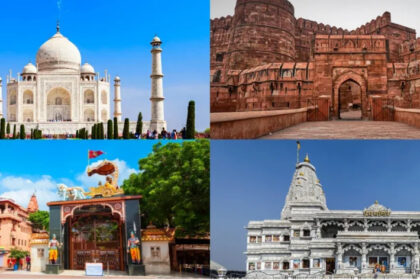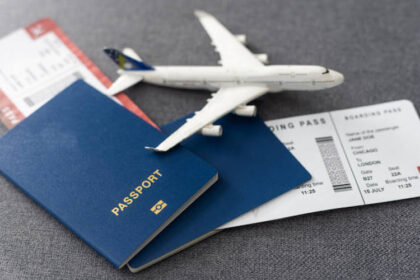Planning Umrah is both spiritual and logistical. The more decisions you front-load, the more focus you’ll have for worship when you arrive. Early Umrah Packages booking isn’t just a “nice to have”—it’s the most reliable way to secure hotel proximity to the Haramain, sensible flight times, and smooth visa processing, all while avoiding last-minute markups and sold-out essentials. Below, you’ll find a practical, step-by-step guide to what booking early unlocks, how far in advance to move, and the exact checklist to use with any tour operator.
The economics of early booking (and why prices rise later)
When demand spikes—Ramadan, school holidays, long weekends—close-proximity hotels and family-friendly room types disappear first. Airlines also tighten lower fare buckets as seats sell. Tour operators, in turn, have less flexibility on dates, room configurations, and add-ons. Booking early means you’re choosing from the full shelf, not the leftovers.
Early advantages you can bank on:
- Lower flight fares & better timings: Morning arrivals and non-red-eye returns are easier to secure early.
- Hotel proximity at a fair rate: Rooms within 50–300 m of the Haramain get snapped up first.
- Room configurations you actually want: Twins for friends, interconnecting for families, accessibility rooms for elderly travelers.
- Operator leverage: Your agent can negotiate upgrades and perks before inventory tightens.
Quick math: shaving just 10–15 minutes of walking per prayer by staying closer to the Haram can save you 1–2 hours per day—time you can redirect to rest, duas, or extra nawafil.
Availability & proximity: the single biggest comfort factor
In Makkah and Madinah, distance and vertical movement (elevators) matter more than star ratings. Early booking lets you prioritize:
- Walking distance: sub-300 m locations drastically reduce fatigue (especially after Taraweeh).
- Elevator capacity: high-rise towers bottleneck near prayer times; better properties handle peak flow.
- Dining practicality: breakfast aligned with Fajr, nearby halal options for quick suhoor/iftar in Ramadan.
Miss the early window and you’ll likely trade convenience for long shuttles or crowded lifts—costing energy every day.
Visa processing & documents: build in buffer time
Even when visa processes are straightforward, buffers protect your trip:
- Document corrections: name mismatches, passport validity, or photo re-submissions.
- Family/mahram arrangements: more time to compile what’s needed for minors or special cases.
- Contingency: if anything changes—job letters, vaccination proofs, or biometrics—you won’t be racing the clock.
Early bookers typically get clearer guidance and faster responses from operators because queues are shorter before peak season.
Smarter flight and transport choices (that only exist early)
- Preferred routes & layovers: Choose shorter connections and reputable carriers before cheaper buckets vanish.
- Haramain High-Speed Train seats: If you’re traveling between Makkah and Madinah, early tickets mean friendlier departure times and adjacent seats for families.
- Private transfers at sensible pricing: Sedans or large vans (with child seats or wheelchair space) are more available weeks out than days out.
Seasonality: when “early” really matters
- Ramadan (especially last 10 nights): book months in advance to secure proximity and avoid surge pricing.
- School holidays / long weekends: inventory tightens quickly; lock dates early to maintain flight choice.
- Off-peak months: you still benefit from upgrades and better room types, but you can book a bit later—still earlier than “last minute.”
How early should you book? A practical timeline
- 4–6+ months out (Ramadan & peak): Start shortlisting operators, compare written inclusions, and hold flights/hotels.
- 2–4 months out (shoulder/off-peak): Finalize hotels within 300–700 m of the Haramain; reserve train seats.
- 6–8 weeks out: Confirm visa paperwork, insurance, and room/bedding specifics.
- 3–4 weeks out: Final payment (as per terms), share arrival details, and set up a WhatsApp group with the operator.
- 1–2 weeks out: Reconfirm transfers, ziyarah timing, and accessibility requests; pack and print document copies.
Pro tip: Ask for a named on-ground coordinator with response time SLAs. Early arrangements make this easy to secure.
What to lock in early (and why)
- Hotel names + exact distance to the Haramain or Al-Masjid an-Nabawi (meters/minutes), and elevator count.
- Room configuration (twin/queen/king, interconnecting, accessible rooms).
- Flights with comfortable arrival/departure times; seat selection if possible.
- Intercity transport (e.g., high-speed train) and station transfers.
- Visa assistance with a clear checklist and response timeline.
- Ziyarah plan (sites covered, group size, language of guide).
- Insurance: medical coverage in KSA and trip interruption.
- Refunds & change policy in writing (see section below).
Protect your budget: deposits, refunds, and price-drop scenarios
- Transparent terms: Request written cancellation and change policies, including deadlines and fees.
- Price-drop protection (where offered): Some operators will re-quote if hotels run promos pre-trip. Ask politely—early bookers have more goodwill to negotiate.
- Payment schedule: A staged plan (deposit now, balance later) keeps cash flow manageable.
- Add-on flexibility: Clarify fees for adding an extra night, room upgrade, or private transfer closer to departure.
Accessibility and family needs: early booking removes friction
- Wheelchairs & porterage: Reserve in advance—limited supply during peak times.
- Elevator adjacency: Lower-floor or elevator-bank rooms help seniors conserve energy.
- Family comforts: Interconnecting rooms, baby cots, and breakfast times aligned with naps or school routines.
A copy-paste comparison checklist
Use this with any tour operator (the earlier you request it, the more you save):
- ✅ Exact travel dates and trip length
- ✅ Hotel names, distance to Haramain/Nabawi, and elevator capacity
- ✅ Room/bedding configuration (interconnecting if needed)
- ✅ Flight timings, baggage allowance, seat selection policy
- ✅ Intercity travel method and transfer details
- ✅ Visa processing steps, fees, and support contact
- ✅ Ziyarah inclusions (sites, language, group size)
- ✅ Travel insurance coverage and 24/7 helpline
- ✅ Named on-ground coordinator + WhatsApp contact
- ✅ Total price, deposit, balance due date, refund/change rules
SEO side note: related entities and terms to include on your page
If you’re publishing this as an internal blog, naturally weave in entities like Makkah, Madinah, Haramain, ziyarah, visa assistance, airport transfers, high-speed train, Ramadan, elevator capacity, hotel proximity, and travel insurance. This helps search engines understand topical depth without keyword stuffing.
FAQs
1) How early should I book my Umrah package?
For Ramadan and school holidays, plan 4–6+ months ahead. For shoulder or off-peak months, 2–4 months is usually enough to secure hotel proximity and favorable flights.
2) Does booking early always save money?
While not every date sees a price drop, early booking almost always secures better value—closer hotels, sensible flight times, and preferred room setups—without surge pricing.
3) What if prices drop after I book?
Ask your operator about re-quoting or value-add perks (meal upgrades, private transfers). Good partners try to protect early customers when promos appear.
4) Can I customise my package after booking?
Often yes—extra nights, room changes, or private ziyarah can be added. Confirm change fees and cut-off dates before you pay the balance.
5) I’m traveling with elderly parents. What should I prioritize early?
Book sub-300 m hotels, confirm elevator capacity, secure wheelchair assistance, and choose private airport transfers to avoid




